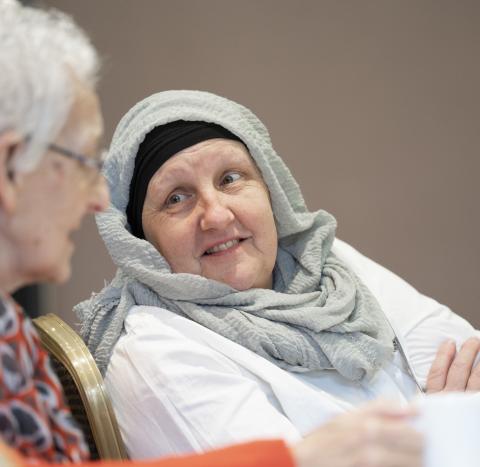Clinical trials offer women who have a diagnosis of ovarian cancer the opportunity to access new cancer drugs, improve understanding of the disease and treatment options, and access the highest quality care.
What are clinical trials?
Clinical trials are medical research studies that investigate potential new drugs, new ways of giving treatments or different types of treatments and compare them to the current treatments.
Researchers test potential new drugs in the laboratory to begin with. If they seem safe and effective, they'll move on to testing them carefully in people.
Watch this video presentation with Rachel Mugnai, one of our nurse advisers, to get a better idea of what clinical trials are and how they work:
Clinical trials look at a number of different issues related to cancer:
-
Screening – developing tests to detect cancer at an earlier stage
-
Diagnosis – how can new tests be used to diagnose cancer
-
Controlling symptoms or side effects
-
Support, information, living well with cancer – for the person with cancer and their family and friends
There are two main types of clinical trials: interventional trials and observational trials.
- Interventional trials
-
These aim to find out more about a particular intervention or treatment. Their purpose is to help researchers to understand if the new drug, test or procedure:
- is safe
- has any expected or unexpected side effects
- works better than the currently used standard treatment or test
- impacts on the person's quality of life
These trials often split participants into two groups using a process called randomisation. One group will receive the new treatment(s) being investigated with the other group receiving the standard treatment or a placebo drug.
- Observational trials
-
These aim to find out what happens to people who are having different treatment, tests or are in different situations. However, rather than influencing what treatment people have the research team observe the people taking part. Those taking part in the trial are not randomised. Studies looking at people's quality of life during treatment are an example of observation studies.
Find out more about how new cancer drugs are approved across the UK



